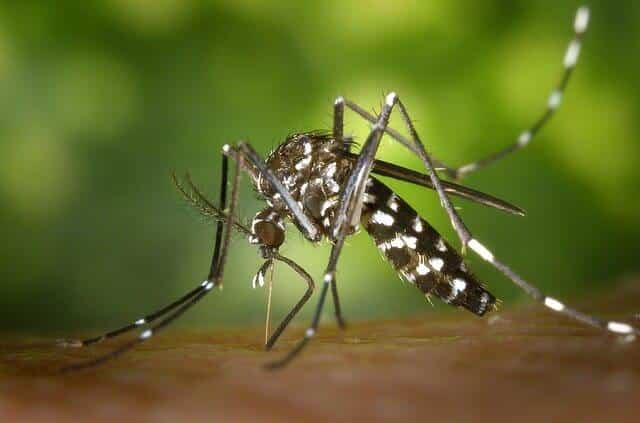Mosquitoes can be a big challenge in warm weather. Bug sprays and insecticides can help keep them away, but many people prefer natural solutions.
The most important step in getting rid of mosquitoes is to make sure they don’t have a place to breed. Most mosquitoes lay their eggs in water, so eliminating standing water is critical. Mosquitoes can go through a life cycle in as little as four days, depending on the species and the temperature, or they can take as long as a month, with the average life cycle of a mosquito being around 14 days.
If you have plants in containers, make sure the saucer is not holding excess water for long periods of time. Small puddles in the yard or driveway can be a good place for mosquitoes if the puddle is not drying up quickly. Pet water dishes also need to be changed regularly. Pools, spas, fountains and birdbaths are also places to keep an eye on.
Now that you have eliminated places for the mosquitoes to breed, what do we do about those already here? Some plants and plant oils can be quite effective at helping to repel mosquitoes.
Make Powerful Herbal Medicines, Right in Your Kitchen!
Here are nine herbs that everyone who hates mosquitoes should consider for their garden and home:
A well-known plant credited with repelling mosquitoes and other pests is citronella. In my experience, this plant works great, particularly when you brush against the leaves. You do have to be fairly close to the plant, though, for it to be effective.
Basil is another great plant for repelling mosquitoes. Lemon basil and cinnamon basil are the best varieties for this, but I have used sweet basil, as well. Rub some leaves on your skin while you are outside.
Lemon balm is another great mosquito-repelling plant. It has a strong lemony scent that bugs simply don’t like. Use this the same way you use the basil; rub a few leaves on your skin, especially around the ankles and wrists and anywhere else the bugs seem to really like.
Ever tried catnip? It repels mosquitoes, too! But if you are a cat owner, be careful where you plant it so your cat doesn’t destroy the rest of the garden.
If you don’t like the scent of basil, lemon balm, or catnip, peppermint or spearmint are good alternatives. Mosquitoes don’t seem to like the scent of mint, so use it the same way you would the other herbs by rubbing it on your skin.
Lavender is another herb that can be used as a mosquito repellent. Plant it near your door or windows to help keep mosquitoes from entering the house. Some other plants that have insect-repelling properties are sweet woodruff, lemon thyme and rosemary.
You can make your own natural insect repellent using any of the plants listed above, or by using a combination. Simply infuse a few spoons of herbs in witch hazel or rubbing alcohol. Crush or break the leaves before adding to the liquid; this helps release the oils. Let the mixture sit at least overnight before using. You can strain out the leaves and put them in a spray bottle for easier application. Common proportions for this natural insect repellent are 4 tablespoons of herbs to 1 cup rubbing alcohol/witch hazel. If your first batch isn’t working well, tinker with the proportions or the combinations of herbs until you find one that works for you.
How do you repel mosquitoes naturally? Share your tips in the section below:
 Off The Grid News Better Ideas For Off The Grid Living
Off The Grid News Better Ideas For Off The Grid Living





